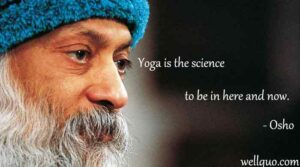In the vast landscape of philosophy and psychology, Osho’s teachings stand as a profound and thought-provoking fusion of Eastern spirituality and Western psychology. His unconventional approach challenges the boundaries of conventional thinking, offering a fresh perspective on the human psyche and the pursuit of inner fulfillment. In this blog, we will explore the remarkable interplay between Osho’s philosophy and psychology.
Understanding Osho’s Life and Teachings
Before delving into his philosophy and psychology, it’s crucial to grasp the life and background of Osho. Born in India in 1931, he rose to prominence in the 1960s and 1970s as a charismatic spiritual teacher and guru. He founded the Rajneesh movement, which later became the Osho International Foundation. Osho’s teachings drew from a wide array of spiritual traditions, including Zen Buddhism, Hinduism, Sufism, and Western psychotherapy.
Dynamic Meditation: Unleashing Emotional Freedom
One of Osho’s most iconic contributions is the concept of dynamic meditation. This practice is designed to help individuals liberate themselves from the shackles of repressed emotions, anxieties, and mental constraints. Dynamic meditation involves vigorous physical activity followed by moments of deep stillness and meditation. This process is intended to shake off accumulated psychological baggage that often hinders personal growth.
At its core, Osho’s psychology centers around the notion that individuals carry a heavy load of suppressed emotions and societal conditioning. These unexpressed emotions can lead to mental and emotional turbulence. Dynamic meditation, along with other mindfulness techniques he advocated, encourages people to confront and release these pent-up emotions. In doing so, one can experience profound emotional freedom and inner tranquility.
Mindfulness: The Power of the Present Moment
Osho placed great emphasis on mindfulness, or the art of living in the present moment. He argued that much of human suffering arises from ruminating on the past or fretting about the future. True happiness and enlightenment, Osho contended, are only attainable in the here and now.
His teachings often included meditation practices that guide individuals to be fully present and aware. Osho believed that through mindfulness, individuals could break free from the constraints of the mind and ego, leading to a more authentic and gratifying life.
The Ego and Self-Realization
Osho held a unique perspective on the ego, considering it not an adversary to be eliminated but rather a tool for navigating the physical world. He believed that a healthy ego was essential for survival and success in society. However, an over-inflated ego, driven by fear and insecurity, could lead to suffering.
Self-realization, according to Osho, involved transcending the ego’s limitations and connecting with one’s authentic self, often referred to as the “witness” or “observer.” This elevated state of consciousness enables individuals to disengage from their thoughts and emotions, fostering a profound understanding of their inner nature.
Love, Sexuality, and Relationships
Osho’s views on love, sexuality, and relationships were groundbreaking, challenging conventional societal norms. He advocated for love that is free from possessiveness and jealousy, and he celebrated sexual energy as a natural and vital aspect of human existence. Osho’s teachings on these topics underscored the significance of conscious and mindful relationships, where individuals unite out of love and understanding rather than societal or emotional conditioning.
Osho’s Transformative Fusion of Philosophy and Psychology
Osho’s philosophy and psychology represent a captivating blend of Eastern spirituality, Western psychology, and personal insight. While his teachings have sparked controversy and debate, they have also deeply resonated with countless individuals on their quest for self-discovery and inner transformation.
His emphasis on mindfulness, dynamic meditation, and the liberation of the self from societal conditioning continues to inspire people on their spiritual and psychological journeys. Whether you fully embrace his teachings or not, Osho’s legacy stands as a testament to the enduring human pursuit of self-realization and enlightenment through the harmonious integration of philosophy and psychology.



